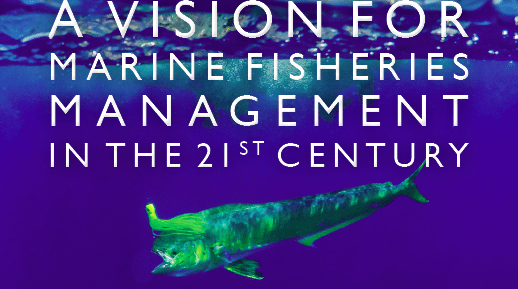New industry report urges modernization in federal fisheries management

A coalition of industry and trade associations on Wednesday released a series of recommendations to improve management of and access to federal fisheries.
The report, A Vision for Marine Fisheries Management in the 21st Century: Priorities for a New Administration is designed to offer guidance to the incoming administration and the new Congress that strives to balance improving access to public waters, creating economic growth, and enhancing the conservation of marine fish stocks.
The report was released by the Center for Coastal Conservation, with additional support from the American Sportfishing Association, Coastal Conservation Association, Congressional Sportsmen’s Foundation, Guy Harvey Ocean Foundation, The International Game Fish Association, National Marine Manufacturers Association, Recreational Fishing Alliance, The Billfish Foundation and Theodore Roosevelt Conservation Partnership.
“We are deeply committed to ensuring a bright future for marine recreational fishing,” said Jeff Angers, president of the Center for Coastal Conservation. “It’s a critical component of our economy, and it’s a proud part of America’s heritage of conservation. The recommendations in this report will ensure that we as a nation do all we can to continue this legacy.”
The Vision report highlights the economic value of recreational fishing in coastal waters. Today, 11 million American anglers fish for recreation in saltwater. From license sales to retail sales, the recreational saltwater fishing industry contributes more than $70 billion annually in economic activity and generates 455,000 jobs. However, outdated federal management policies threaten to stem this positive economic trend, the report says.
“This document is an important step in communicating with the next administration about the importance of recreational fishing and boating and the need for fundamental changes in the way saltwater recreational fisheries are managed. Recreational fisheries need to be managed to maximize opportunities to fish,” said Thom Dammrich, president of the National Marine Manufacturers Association. “It is great to see all the major associations involved in fisheries issues coming together to produce and deliver this important vision document to the transition teams and members of Congress.”
The report recommends a shift away from using the same tools to manage commercial fishing and recreational fishing at the federal level. New approaches should reflect the reality of demand for recreational access to our marine fishery resources, the current economic activity associated with that access, and the scientific data of the light footprint recreational access has on our fishery resources, said Ted Venker, Conservation Director of Coastal Conservation Association and Chairman of the Center for Coastal Conservation’s Government Relations Committee.
“It’s important that lawmakers and policymakers understand that commercial and recreational fishing need to be managed differently,” Venker said. “The vision report’s recommendations suggest taking a clear-eyed look at our nation’s fisheries, using modern science and technology to guide decision-making.”
“Fishing is a treasured pastime and tradition for millions of Americans and needs to be treated as such,” added Angers. “The new Administration and Congress should take steps to keep this tradition alive – for the benefit of all those who enjoy fishing, for the hundreds of thousands employed in the recreational fishing industry, and for future generations of anglers who will fall in love with the sea.”
Several other industry groups are supporting the effort as well.
“It’s time for the federal policies that govern U.S. fisheries to account for the impact the recreational and boating industries have on the economy,” said Martin Peters, government relations manager, Yamaha Marine Group. “Yamaha strongly supports the vision as it aims to preserve and promote growth within these industries while maintaining meaningful conservation standards within U.S. fisheries.”
“While progress has been made in recent years to improve saltwater recreational fisheries management, many important opportunities and challenges remain,” said ASA President and CEO Mike Nussman. “We look forward to working with the next administration to fully develop our outdoor economy including embracing the important role that saltwater recreational fishing plays in creating jobs and promoting sustainable enjoyment of our nation’s fisheries resources.”




